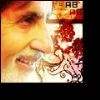ASHOK KUMAR was a superstar. Prithviraj Kapoor was a superstar. Dilip Kumar was a superstar. So were, at various points of time, Raj Kapoor, Dev Anand, Rajesh Khanna and Shashi Kapoor. And though most of them lived long (and many of them are still living), not one of them has the longevity of Amitabh Bachchan's superstardom. What makes Bachchan go on and on and on and stay at the peak? It can't be just his looks. He isn't what you would call conventionally handsome; his height and his voice, both of which set him apart, were at one time considered handicaps. All India Radio, in fact, rejected him when he was just starting out on his career, because someone there thought his deep baritone needed toning down. Similarly when he did his first major role in ''Saat Hindustani", most people — and that included producers, directors and audiences — thought he was far too gangly and awkward. Is his success, then, due to a superior acting talent? If you look at the list of superstars again, you will see that except for Dev Anand all the others had very definite strengths as actors, ranging from the very good to the formidable, and even Anand got by because he had developed a distinct persona and a characteristic style which helped him overcome his shortcomings as an actor.
So, then, what is Amitabh Bachchan's secret? Does anyone know? Or are we all playing a guessing game?
By common consensus, Bachchan's acting career took off with ''Zanjeer." He was certainly noticed in Hrishikesh Mukherjee's ''Anand," but the film was a vehicle for Rajesh Khanna's star turn. ''Zanjeer" gave Bachchan the role which defined his screen persona from then on. See it again now and you will realise immediately that Salim-Javed wrote the role for him. As it happens, they didn't: the part was offered, in turn, to Dev Anand, Raaj Kumar and Dharmendra. Each of them said 'No'. Suppose one of them
had said, 'Yes'. Would Amitabh Bachchan have packed his bags and returned to his executive job in Kolkata? Not likely. For one thing Bachchan has a stubborn streak and he had set his heart on an acting career. For another, destiny takes a hand in these things and it would have found a way to either derail any other actor who accepted the role, or there would have been a ''Zanjeer 2." Javed Akhtar writes about his first meeting with Bachchan. "I had gone to Mohan studio for the shooting of ''Seeta aur Geeta." ''Anand" was being shot on the opposite floor and that's how I first met Amitabh. He came across as a gentle, sophisticated but very shy and reticent person." Akhtar says that when ''Zanjeer" was offered to Amitabh, "he was sceptical initially. Not about the role, but about whether he could do it! 'Do you think I can pull it off?' he asked me. You see, till then he had played rather gentle characters." He certainly pulled it off. The brooding intensity which became so much Bachchan's trade-mark, was first noticed widely here. His role was brilliantly written: the cop who takes the law into his hands because his sense of justice is violated. The blood-shot eyes, the lithe frame coiled in rage, the sudden explosion of a pent up fury, all of these came together in Bachchan's vigilante cop, and they stayed with him from then on. (Film buffs, though, will remember an earlier — and forgotten — Bachchan film called ''Parwana" and a scene in it where Amitabh pleads with the character played by Om Prakash before killing him. The intensity we saw in ''Zanjeer" was clearly present then). With the films that followed, Amitabh Bachchan began establishing a definitive screen persona — ''Deewar," ''Namak Haram," ''Trishul," ''Muqaddar ka Sikandar," ''Namak Halal," ''Coolie"... in all of them, yes he was the Angry Young Man, but what was important was what he was angry about. Social injustice, the disparities between rich and poor, the struggle for survival through poverty... these weren't exactly new themes for Hindi cinema, but in the smouldering face of Amitabh Bachchan, they found the ultimate expression. For the vast majority of cinema audiences — the poor, the unemployed, the illiterate — he became
the hero. Oddly enough, he had as many fans in the middle and upper classes. That has partly to do with our tendency to worship anyone who is famous irrespective of what they stand for. But it also has a lot to do with Hindi cinema's moral ambiguity, where the climax always brings about reconciliation, so that the darkest villains see the light and are transformed into good guys. This persona was what made Amitabh Bachchan the biggest star Indian cinema has ever produced. The other stars we referred to were romantic or tragic heroes or lovable rogues. But the issues they addressed were 'personal' ones, not large, societal ones. Only Raj Kapoor played characters that had to deal with these larger issues, but his character was the Chaplinesque Tramp, part comic, part rueful, always down and out. You laughed with him and felt sorry for him, but he never carried you away as did the blazing anger of Bachchan's character. But what happens to an Angry Young Man when he ages? An Angry Middle Aged Man doesn't quite sound the same. Perhaps concerned about that or perhaps an actor's striving for versatility made Bachchan take up comedy roles in a large number of films like ''Amar Akbar Anthony" but that wouldn't have kept him at the top of the very tall peaks he had conquered. What kept him there was that the drama in his real life became almost as interesting as the drama in his screen life. Who doesn't remember the accident on the sets of ''Coolie" when his intestines were ruptured and he came back from the brink of death after a titanic struggle waged by doctors (and his will) which went on for weeks? Who doesn't remember his foray into politics at the behest of his friend, Rajiv Gandhi, his enormous victory in the elections at Allahabad and his grief at Rajiv's assassination? Who doesn't remember the way he was hounded by the V. P. Singh Government for his supposed role in the Bofors case and his determined efforts to clear his name? In all of these, there wasn't just drama. In all of these, there were hugely tragic elements that showed him to be as vulnerable as any of us in spite of his superstar status. We worship our gods because they are superhuman and can do no wrong. But when one of them is seen to be as defenceless as any of us, we take him to our hearts. When ABCL, his effort to corporatise his name, failed, it was one more sign of his vulnerability. When he refused to declare bankruptcy in spite of the lien on his own house, and announced his determination to pay back all his loans, we saw that he was honourable. When stories leaked out (in spite of his best efforts) of his generosity in paying medical and hospital bills of technicians and spot boys, he endeared himself even more to us. Then came ''Kaun Banega Crorepati." He had already made forays into television through ads in which he featured, but KBC marked the first time that any major actor ventured into a television show. And a game show at that. Would other actors have sensed the opportunity? Would they have used it so brilliantly to bring into millions of homes this elder statesman, who was gentle and kind-hearted and did his best to make contestants win? For an actor who had stopped taking chances with his roles, this was a masterstroke, both in conception and execution. He was at an age when he could have only played a father in conventional Hindi films; his renewed popularity actually made writers and directors do the unthinkable — invent important roles for an older actor actually playing his age.
Does that all add up to a perfect script where screen and real life complement each other to the fullest? Probably. For some, there will be regret that at some point Amitabh Bachchan stopped stretching himself artistically. That when the sky was the limit to what he could do, he chose a mountain peak instead. But who knows? He might decide to do that now. There is still time. Hopefully, lots of time.













comment:
p_commentcount